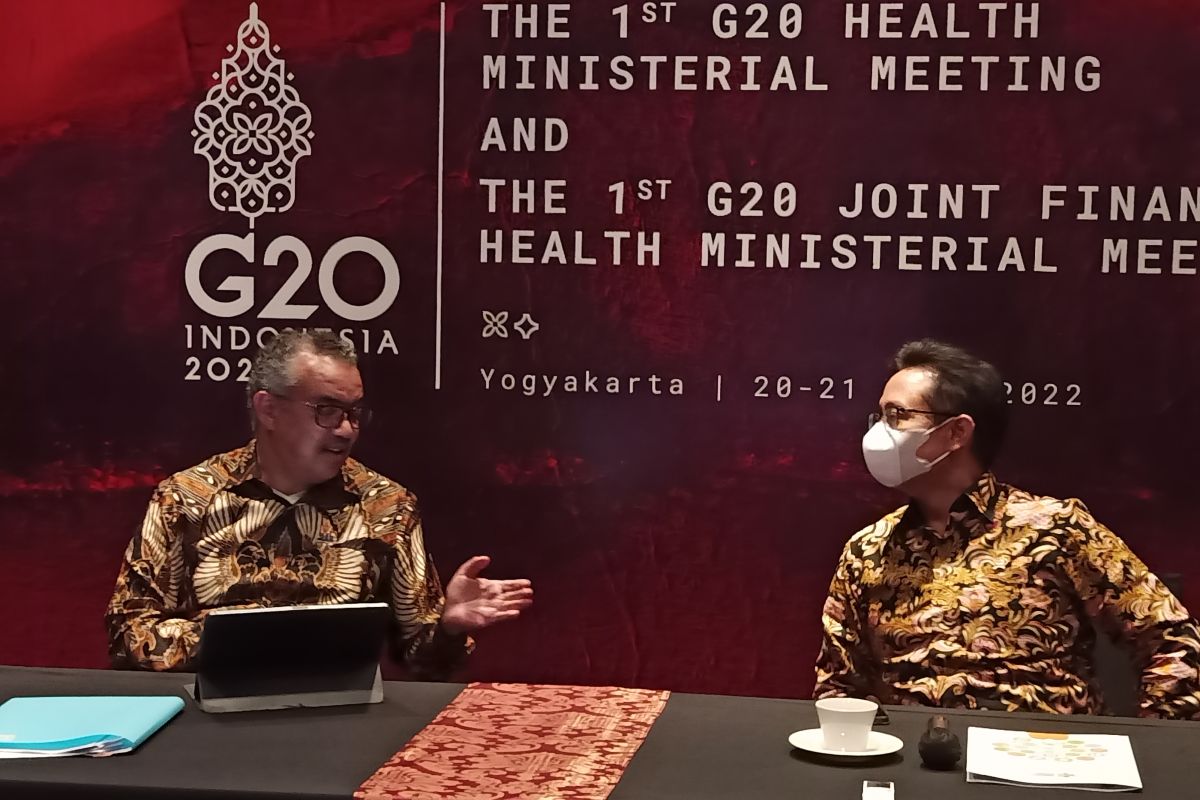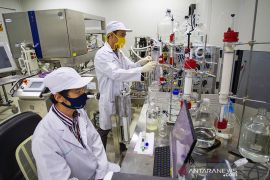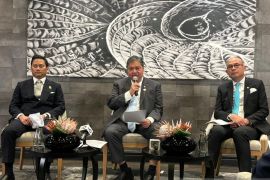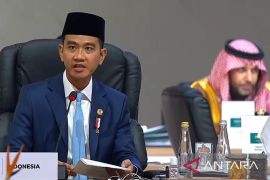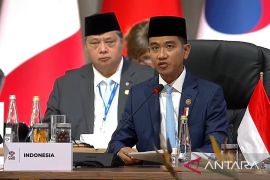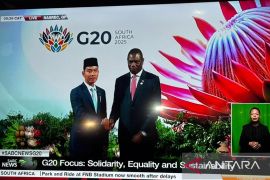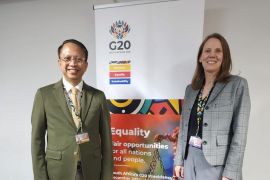Citing information from Channel News Asia, the International Monetary Fund (IMF) estimated the global economic losses due to the pandemic to reach US$12.5 trillion, or Rp178,750 trillion, until 2024.
Indonesia was no exception, as it had to bear losses to the tune of Rp1,356 trillion in 2020 due to the pandemic. This figure was calculated on the basis of the economic growth realization, which was minus 2.07 percent, far below the state budget's growth target of 5.3 percent.
In the costly effort to recover the national economy, Indonesia, as a developing country, has absorbed Rp95.13 trillion, or equivalent to 20.9 percent of the budget allocation, as of June 3, 2022.
According to the Committee for Handling COVID-19 and National Economic Recovery (KPC-PEN), the absorbed budget is mostly used for the community protection sector affected by the COVID-19 pandemic.
In addition, Rp24.46 trillion of the budget is intended for health care, such as tax incentives for vaccines or medical devices, as well as COVID-19 handling.
In addition, Rp55.85 trillion worth of realization for community protection was absorbed through the Family Hope Program (PKH), essential necessities cards, Pre-Employment Cards, Cash Transfer for Villages (BLT), as well as cash assistance for buying cooking oil and for street vendors, stall owners, and fishers.
President Joko Widodo (Jokowi) at the Indonesian Democratic Party of Struggle (PDI-P) meeting, Wednesday (June 22), reminded that the world crisis was becoming increasingly real.
The head of state emphasized that amid efforts to recover the economy, the war between Russia and Ukraine had impacted the food and energy supply chains.
Several international institutions, such as the IMF, the World Bank, and the United Nations, forecast that 60 countries were in danger of collapsing due to the crisis, Jokowi pointed out.
"Who will help them when they have 42 (the collapsed countries)? International institutions may be able to help if only one, two, or three countries are in crisis. However, if the number has reached 42 countries, or even 60 (countries), we do not know what we should do," he affirmed.
Diplomacy
Reflecting on the pandemic experience, Indonesia is keen to not waste the opportunity of hosting the G20, whose member countries represent 90 percent of the global gross domestic product (GDP), 80 percent of the total world trade, and two-thirds of the world's population.
At the 1st G20 Health Ministerial Meeting held in Yogyakarta on June 20-21, 2022, Indonesia convened global health stakeholders with the health and financial sector leaders from 19 countries having the largest economic influence in the world.
Some leaders present at the health forum were the World Health Organization (WHO) Director-General Tedros Adhanom Ghebreyesus, Coalition for Epidemic Preparedness Innovations (CEPI) CEO Richard Hatchett, Organisation for Economic Co-operation and Development (OECD) Secretary-General Mathias Cormann, and President of the Global Initiative on Sharing All Influenza Data (GISAID) Peter Bogner, as well as the Global Fund delegation.
Health Minister Budi Gunadi Sadikin, who led the forum, conveyed Indonesia's promise to realize the scheme of raising and utilizing emergency funds for potential pandemics in the future.
The meeting also discussed the establishment of global health surveillance, so that countries can come together in case a particular pathogen, anywhere in the world, can trigger the next pandemic.
The G20 health ministers also readied a joint policy scheme that aims to optimize the movement of goods and the public during lockdowns.
"Hence, medical emergency measures can work together, and health workers can still serve the community," he stated.
The G20 also aims to ensure equitable distribution of global research and manufacturing centers across all countries, so that the production of vaccines, therapeutic drugs, and diagnostic tools can reach worldwide.
On the same occasion, World Health Organization (WHO) Director-General Tedros Adhanom Ghebreyesus estimated that the financial need for strengthening global health security reaches US$31 billion per year.
"The WHO and World Bank estimate that US$31 billion is needed every year to strengthen global health security. Two-thirds of that (amount) could come from existing resources, but that leaves a gap of US$10 billion per year," he pointed out.
To date, the G20 forum has agreed to commit to emergency fundraising of approximately US$1.2 billion for the establishment of the Financial Intermediary Fund (FIF).
Meanwhile, Singapore's Health Minister Ong Ye Kung was among the senior officials, who attended the forum in Yogyakarta. Singapore is not a G20 member but has consistently fulfilled invitations to participate in G20-related summits.
Minister Ong stated that the FIF establishment and the emergency fundraising commitment were significant achievements in the world's health sector development.
Moreover, GISAID President Peter Bogner welcomed the idea of the GISAID+ platform proposed by Indonesia. GISAID+ will be functioned to report various non-influenza pathogens from all parts of the world.
According to Boger, since GISAID reported COVID-19 in 2020, some countries have requested that other pathogens that potentially trigger future pandemics, such as Zika, Chikungunya, Dengue, Tuberculosis, Monkeypox, and others, can be included in GISAID's report.
One health
Indonesia's leadership in the G20 health forum also encouraged the new era of One Health implementation to address the root causes of the pandemic problem.
Recommended by WHO, One Health is a collaborative approach that is aimed at harmonizing the lives of people and animals, as well as ecosystems.
Indonesia held three pre-events before the One Health event to prepare the discussions and agenda more comprehensively.
The first pre-event was held on March 25, 2022, to discuss the Self-Assessment Questionnaire (SAQ); the second one, on May 13, 2022, covered One Health as an important tool for pandemic preparedness; while the forum on May 28, 2022, discussed the organization of One Health.
Indonesia's G20 One Health side event was finally held in Lombok on June 8, 2022, with focus on the "One Health Policy Brief".
The feedback for the One Health Policy Brief was included as part of the Declaration of the G20 Health Ministers 2022.
Related news: G20 ministers discuss sources, utilization of health emergency funds
Related news: Ministry encourages G20 member countries to form global health system
Editor: Rahmad Nasution
Copyright © ANTARA 2022
